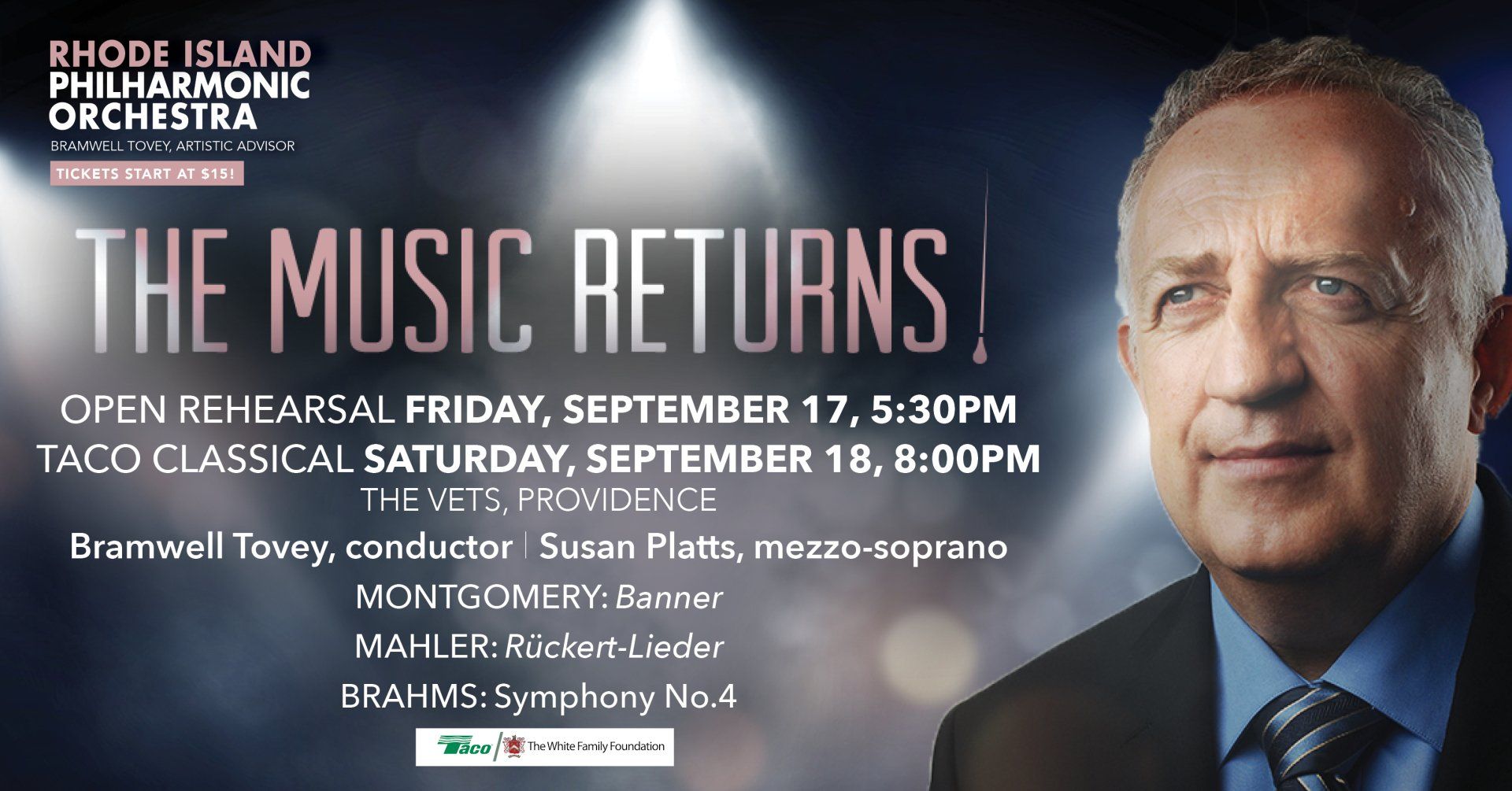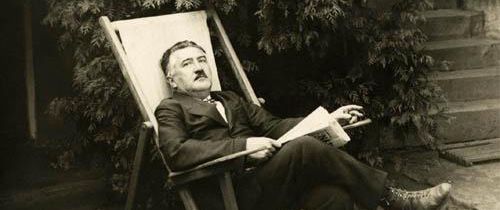THE STORY BEHIND: Mahler's Rückert-Lieder
Share
On September 18, Bramwell Tovey and the Rhode Island Philharmonic Orchestra will present the Opening Night concert of their 2021-2022 season with mezzo-soprano Susan Platts.
Title: Rückert-Lieder
Composer: Gustav Mahler (1860-1911)
Last time performed by the Rhode Island Philharmonic:
This is a RI Philharmonic Orchestra premiere. In addition to a solo mezzo-soprano, this piece is scored for flute, piccolo, two oboes, oboe d’amore, two clarinets, bass clarinet, two bassoons, contrabassoon, four horns, three trumpets, three trombones, tuba, timpani, percussion, harp, piano, celesta and strings.
The Story:
An irrepressible vocal composer, Gustav Mahler wrote six groups of orchestrally accompanied songs for voice(s) and included the voice in four of his ten symphonies. His song composition often flowed into his symphonic thought; a song composed with piano or orchestral accompaniment sometimes became a symphonic movement.
In his early works (before 1900), Mahler’s chief poetic source was Brentano’s large collection of folk poetry titled Des Knaben Wunderhorn (“From the Youth’s Magic Horn,” which also become the title of a Mahler song cycle). However, beginning in 1901, his inspiration came largely from a single poet, the German romantic Friedrich Rückert (1788-1866). Over the next three years, Mahler composed ten songs on Rückert’s verse, and in 1905 he wrote to composer Anton Webern: “After Des Knaben Wnderhorn I could not compose anything but Rückert — this is lyric poetry from the source, all else is lyric poetry of a derivative sort.”
Kindertotenlieder (“Songs of the Death of Children,” 1901-1904) became Mahler’s most famous Rückert orchestral song cycle. While working on that massive masterpiece, he was also composing some individual settings of Rückert. Lacking a central idea, these songs are related by being based on the author’s own experiences and introspective explorations: the central principle underlying Mahler’s entire oeuvre. The handfuls of songs that resulted are loosely titled Five Rückert Songs, and they have often been overshadowed by the monumental Kindertotenlieder, but far from being incidental, they are some of the most beautiful, elegant, and intimately lyrical vocal music to come from Mahler’s pen.
One of Mahler’s means of achieving intimacy is his chamber-orchestra scoring. In the first two songs, we hear single winds and limited brass. Contrabasses are missing from the first song, and cellos are also tacit in the second. Another feature shared by the two songs is a murmuring perpetual counter-melody in the strings. Both also have folksong qualities. In Blicke mir nicht in die Lieder (“Do not eavesdrop on my songs”), the opening line returns like a refrain or motto. However, this occurs before the end of the first stanza, which turns the expected strophic design topsy-turvy and makes the song more like a continuous lyrical narrative.
Ich atmet’ einen linden Duft! (“I breathed a gentle fragrance”) focuses musically on enchanting folk-like vocal melody. This, in turn, becomes the foil for gently witty word-play from the poet (linden Duft = gentle fragrance; Lindenduft = fragrance of lime) and frequent alliteration, especially on the letter “L.” A somewhat impressionistic quality pervades the music, made possible partially by the bell-like celesta combined with the harp.
Scored mainly for a wind ensemble, Um Mitternacht (“At Midnight”) is certainly the grandest and perhaps the most profound of the Five Rückert Songs. Framing each stanza with the title phrase, the poet then encapsulates one personal crisis in the four short lines. Beginning quietly (yet with slight tension), the musical style progresses gradually toward Mahler-esque symphonic nobility. The climactic moment comes at last, when the poet/composer gives over his life to God.
Of Ich bin der Welt abhanden gekommen (“I have lost track of the world”), Mahler later wrote, “It is feeling that rises to the lips but does not pass beyond them! . . . It is my very self!” In this song, we have the clearest instance of Mahler’s autobiographical bent in the Rückert songs. For we know that he had time to compose only on vacations in the mountains, where he would trudge off daily to a small cabin far away from “the world.” The meditative quiet of this place pervades the song. In it, the introspective style has been compared with the Adagietto of the Fifth Symphony, which Mahler was composing at the time.
Program Notes by Dr. Michael Fink © 2021 ALL RIGHTS RESERVED
Tickets start at $15! Click HERE or call 401-248-7000 to purchase today!








